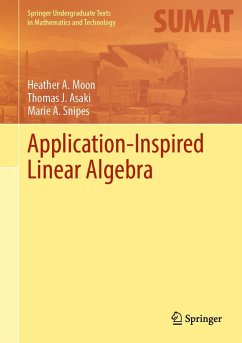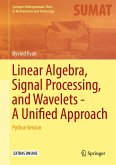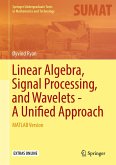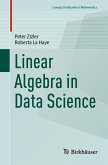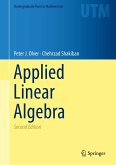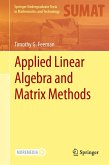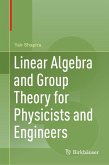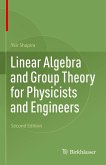This textbook invites students to discover abstract ideas in linear algebra within the context of applications. Diffusion welding and radiography, the two central applications, are introduced early on and used throughout to frame the practical uses of important linear algebra concepts. Students will learn these methods through explorations, which involve making conjectures and answering open-ended questions. By approaching the subject in this way, new avenues for learning the material emerge: For example, vector spaces are introduced early as the appropriate setting for the applied problems covered; and an alternative, determinant-free method for computing eigenvalues is also illustrated. In addition to the two main applications, the authors also describe possible pathways to other applications, which fall into three main areas: Data and image analysis (including machine learning); dynamical modeling; and optimization and optimal design. Several appendices are included as well, oneof which offers an insightful walkthrough of proof techniques. Instructors will also find an outline for how to use the book in a course. Additional resources can be accessed on the authors' website, including code, data sets, and other helpful material. Application-Inspired Linear Algebra will motivate and immerse undergraduate students taking a first course in linear algebra, and will provide instructors with an indispensable, application-first approach.
Dieser Download kann aus rechtlichen Gründen nur mit Rechnungsadresse in A, B, BG, CY, CZ, D, DK, EW, E, FIN, F, GR, HR, H, IRL, I, LT, L, LR, M, NL, PL, P, R, S, SLO, SK ausgeliefert werden.

